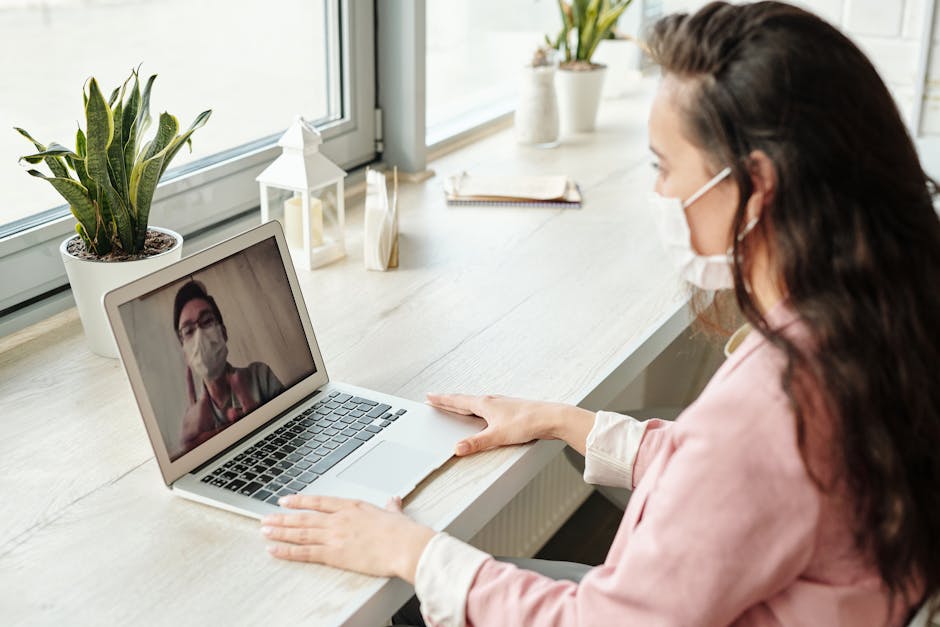At a time when everyone is looking to understand the scope of the pandemic and how to minimize the threat, one of the best-informed voices is that of businessman and philanthropist Bill Gates. The co-founder of Microsoft has spent the last few decades focused through the Bill and Melinda Gates Foundation on improving global health, including reducing the spread of infectious diseases.
We spoke earlier this evening Bill Gates. Thank you very much for joining us. You were one of the prescient few years ago who said that an infectious disease outbreak was coming that could kill millions of people. How is what is happening now, different from what you expected BILL GATES, Founder Microsoft? Well, sadly, I would say that the economic damage is much greater. I put $ 3 trillion for a respiratory virus spreading around the globe And you know clearly we’re going to go well beyond that. You know, the whole goal of speaking out then wasn’t to be able to say I told you so when it happened. Rather, it was to make sure we did the right thing so that diagnostics would come out right away. The timeline for a vaccine would be very short, And, sadly, not many of those things were done So now we’re scrambling to come up with therapeutics scrambling to try and figure out how to get this vaccine made.
But — people are rising to the occasion, but it’s a very bad situation. Judy WOODRUFF Well speaking of things that weren’t done testing. This has become one of the central problems facing the United States right now. President Trump said I think three weeks ago that there would be some sort of rapid testing. He mentioned Google. He said that was imminent. It hasn’t happened. Why is this so hard? And what do you think it’s going to take to get a rapid-turnaround test in place BILL GATES? Yes, we need a variety of tests. The testing that’s currently being done, which is a PCR-based test. There was an advance that our foundation drove that now you can do a self-swab, so you could very quickly do the test without having the health care worker, have to wear protective equipment and having to change that
So eventually, we will have a home test that you can just swab and send back in for the PCR JUDY WOODRUFF. So what is the most immediate thing that needs to be done with regard to testing BILL GATES? Well, you can imagine having a Web site where you enter in the criteria of your symptoms. Are you an essential worker where you are and it gives you back a priority level, and so all the testing operations to make sure that they’re only taking in enough high-priority stuff that they can maintain a very quick turnaround. So you don’t have stale results. That should be reasonable to put together
In parallel, we have got to go as fast as we can on therapeutics and go as fast as we can on a vaccine, because therapeutics can save a lot of lives and avoid the overload And with luck some of those will be promising in the next three. To six months, The vaccine is critical, because until you have that things aren’t really going to be normal, They can open up to some degree, but the risk of a rebound will be there until we have very broad vaccination, JUDY WOODRUFF Well – and you have said it – May take — according to the scientists you work with, and you talk to all the time it could take up to a year-and-a-half to get that vaccine. What — are you saying literally, that it could be the fall of 2021 before Americans can be safe from this COVID-19 BILL GATES Before you can be completely safe? I mean by doing the strong social distancing that most of the country is engaged with right now that allows you to level off the cases and bring it down, And you want to bring it down to a level that your capacity to test to do contact tracing To make sure the quarantine is maintained, so you don’t see a big rebound, even though you have allowed most work to continue –, you know school, you know, certainly in the fall, you would like to see that go in
So we want to have that period. Have the economy not as damaging as it is in this extreme period, where the numbers are so big — and they have been growing exponentially — that we have got to get that down, so that it’s much lower, JUDY WOODRUFF. But when you talk about returning to some semblance of normal, what are we saying that looks like I mean you mentioned, keeping up social distancing? What could life look like, say? Six months a year from now, There’s still some of these –. Some of these steps we’re taking now they would remain in effect BILL GATES. Yes, I’m working to write about that. The closest model today is you look at China. They are sending people back to work, but they’re, wearing masks, They’re checking temperatures They’re not doing large sporting events, And so they have been able to avoid a large rebound. There are countries like Sweden that aren’t locking down quite as much and seeing OK do their numbers go up. If so, can you trace back, which are the activities that are causing that We need to learn from all the countries?
Our partner, international Health, Metrics and Evaluation is looking at forecasts where they compatriot different countries And then that’s helping us to understand. Ok, which policies in which countries seem to be working, And so we will be far closer to normal once we get those case numbers down, but there will be some things where the benefit to the risk, like large public gatherings, may not resume until broad vaccination has Taken place, JUDY WOODRUFF, Meaning conventions, gathering –, when you say large public gatherings over 10 people BILL GATES, Yes, well, we will have to figure out how to draw that threshold And we may even understand age-specific risk at that point.

And so having a classroom with 30 young people in it may be just fine because their role in transmitting the disease we will understand in the next month or so. It may be so limited that you’re far more liberal with young people getting together than you would be with a general-age audience JUDY WOODRUFF A couple questions about the economy. The Wall Street firm Evercore is projecting a 50 percent — that is 5-0 percent. — drop in GDP. This quarter an unemployment rate of 20 percent twice as high as during the financial crisis.
They’re projecting another 5 percent drop in the third quarter, And that’s before we begin to come back Is that your assessment BILL GATES. Well again, I’m not a — as deep, an expert on that as I am on vaccines. If you have just a three-month period of extreme shutdown and then you were able to do a large degree of opening up that, you know in the end, is the best thing from a medical point of view and an economic point of view. One thing that will be very tricky, though, is: when we open up. You know people’s psyche in terms of their wealth and their willingness to go out, and do things has been deeply affected. So, even once you fix these supply side by allowing people to go back to work in factories to run, then you will still have this huge question about the demand side. You know, taking trips buying new houses even buying a car. This is very unprecedented.
And so, although that model you mentioned, looks like one of the more negative it –. The uncertainty is such that it’s not out of the realm of possibility. Judy WOODRUFF The continent of Africa is a place that you and your wife Melinda know very well through your foundation. You have done so much work there. How much do you worry about the effect of this pandemic in a place like that when it hits there BILL GATES? Yes, sadly, it seems likely at this point that, even though the deaths in the developing world have been very small as yet, because not that many people with the disease went there as moving around in between rich countries that, because their health systems are so limited because The social distancing is much harder to do where you live in a slum right next to each other. You have to go out to get your food. There isn’t the capacity to run the food distribution system with just a small percentage of the work force like the U.S
Has And so trying to help those countries get their testing capacity up figure out what tactics work for them. That may be different –. The kind of social distancing rich countries do may not work, And so how do you tune that? Sadly, you know I do think that most of the deaths will be in those countries and the most extreme economic pain They’re, not able to borrow 10 percent 20 percent of GDP, which many of the rich countries are engaged in that exercise. They just don’t have the creditworthiness. The sense that that will drive hyperinflation would be very strong. So, even though it’s super important that we deal with the domestic numbers and get those down as we think about innovation, as we think about the rest of this year, the suffering in those countries. We also need to be thinking about that and help as much as we can JUDY WOODRUFF Do I hear you say you think most of the deaths will come …
Bill GATES In developing countries, JUDY WOODRUFF In developing … BILL GATES, Yes, JUDY WOODRUFF And finally, a personal question. You certainly know this issue better than most anybody else, and yet it has shaken a lot of people. It has caused people who are normally. You know, together in their lives, to be quite rattled. How do you think –? How do you think you have been affected by this BILL GATES? Well, I’m deeply shaken. I — you know every day, I’m like. Are we really in this situation? Wow, You know there are things like polio eradication that you know was –. We were –. We felt like we’re making progress on that. This is going to be an unbelievable setback. For that You know, people are taking the resources that are funded for that and shifting them to this priority. So you know, who knows where we will be on those other efforts. We have some great HIV breakthrough drugs that we want to get out into trials. Those trials aren’t happening. In fact, the top people who were going to work on that are — have been reassigned to work on the coronavirus vaccine.
So the foundation is scrambling because it has a lot of the key understandings and relationships to accelerate some of these solutions. But our normal work is suffering And you just look at people who are isolated at home or you know overcrowded in their home or kids. Who are going to lose three months of learning? The amount of pain involved in this thing is gigantic, And you know so it’s deeply troubling, but we need to still act to minimize all of that JUDY WOODRUFF Well Bill Gates. We thank you very much for spending the time with us for talking with us today. Thank you And we wish you and what you’re doing at the foundation, the very best BILL GATES Thanks you…
